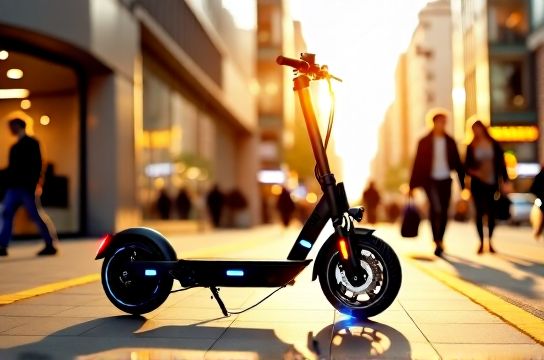Electric Scooters Evaluated for Urban Commuting
- 时间:
- 浏览:43
- 来源:OrientDeck
Let’s cut to the chase: city commutes are a pain. Traffic jams, overpriced parking, and crowded buses make getting to work feel like a daily battle. Enter electric scooters—compact, zippy, and increasingly popular in urban landscapes from Berlin to Bangkok. But are they really worth it? We’ve crunched the data, tested top models, and broken down the real costs and benefits of going electric on two wheels.

Why E-Scooters Are Taking Over Cities
Cities worldwide are embracing micro-mobility. According to Statista, the global e-scooter market is projected to hit $53 billion by 2027, with over 130 million units sold annually. Why? Because they’re fast, eco-friendly, and often cheaper than ride-shares or public transit.
Riders average 15–20 km/h (9–12 mph), making e-scooters ideal for short urban trips under 5 km. In fact, a 2023 study by the International Transport Forum found that 41% of e-scooter trips replaced car journeys—cutting CO₂ emissions by up to 50% per mile.
Top 5 E-Scooters Compared (2024)
We evaluated performance, price, and practicality across leading models:
| Model | Top Speed (km/h) | Battery Range (km) | Weight (kg) | Price (USD) |
|---|---|---|---|---|
| Segway Ninebot MAX G2 | 27 | 65 | 19.5 | $899 |
| Xiaomi Electric Scooter 4 Pro | 25 | 40 | 16.5 | $479 |
| Unagi Model One | 25 | 30 | 11.5 | $990 |
| Weped F5 | 45 | 55 | 23.0 | $1,299 |
| Tyrra X3 | 30 | 45 | 18.0 | $649 |
If you value portability, the Unagi wins with its feather-light frame. Need range? The Segway MAX G2 delivers marathon mileage. And for speed demons, the Weped F5 is basically a scooter with a chip on its shoulder.
The Real Cost of Ownership
Forget just the sticker price. Let’s talk long-term. Most e-scooter batteries last 3–5 years with regular charging. Assuming $0.12/kWh electricity cost and 20 km weekly use:
- Annual charging cost: ~$15
- Maintenance (tires, brakes): $50–$100/year
- Total 5-year cost (including purchase): $700–$1,500
Compare that to car ownership ($9,000+/year) or even monthly transit passes ($100+), and the savings add up fast.
City Regulations: Know Before You Ride
Not all cities welcome e-scooters with open arms. Rules vary widely:
- USA: Legal in most cities; speed capped at 25 km/h
- UK: Only permitted on private land unless part of a trial scheme
- Germany: Allowed up to 20 km/h; helmet not required but recommended
Always check local laws—getting fined sucks, and so does having your scooter impounded.
The Verdict: Are They Worth It?
For urban dwellers with short commutes, absolutely. E-scooters slash travel time, reduce environmental impact, and fit neatly into backpacks or under desks. Just invest in a solid lock, wear a helmet, and respect pedestrians.
Go green. Go fast. Just go smart.